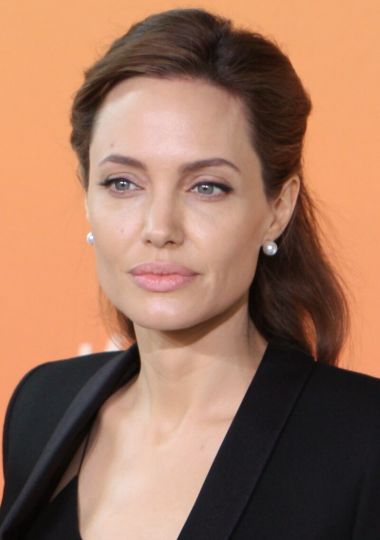Angelina Jolie joins celebrities opposed to Donald Trump's presidential campaign

A string of A-list celebrities have been objecting to the presidential bid of business magnate Donald Trump, the presumptive nominee of the GOP. They don't think he'd be a good fit at the White House because of his perceived racist and bigoted comments against Mexicans and Muslims. They were particularly miffed when Trump called for a ban on Muslim entry into the United States.
George Clooney has called Trump a "xenophobic fascist," while Jennifer Lawrence hopes she can run into Trump just so she can curse at him.
Now, Angelina Jolie has joined the growing number of celebrities who have expressed disdain towards Trump.
Jolie, who is the United Nations High Commissioner for Refugees special envoy, spoke during a BBC event in London on Monday and called on people to do something proactive about the Syrian migrant crisis, according to Raw Story.
When she was asked by BBC reporter Mishal Husain if her disappointment with American policymakers also included Trump, Jolie shook her head in apparent frustration.
"To me, America is built on people from around the world coming together for freedoms, especially freedom of religion. So it's hard to hear this is coming from someone who is pressing to be an American president," Jolie, 40, answered.
Even though he drew a lot of flak for his proposal to ban Muslim entry, Trump has stood firm on his statement. "I'm doing the right thing when I do this," Trump, 69, told MSNBC earlier this May.
"And whether it's Muslims or whether it's something else, I mean, I have to do that right thing, and that's the way I've been guided."
Jolie does not agree with Trump. She even likened the Syrian migrant crisis to World War II because it was a "once-in-a-generation moment when nations have to pull together."
"[It's] not because the model is flawed or because refugees are behaving differently, but because the number of conflicts and scale of displacements have grown so large," she said.











